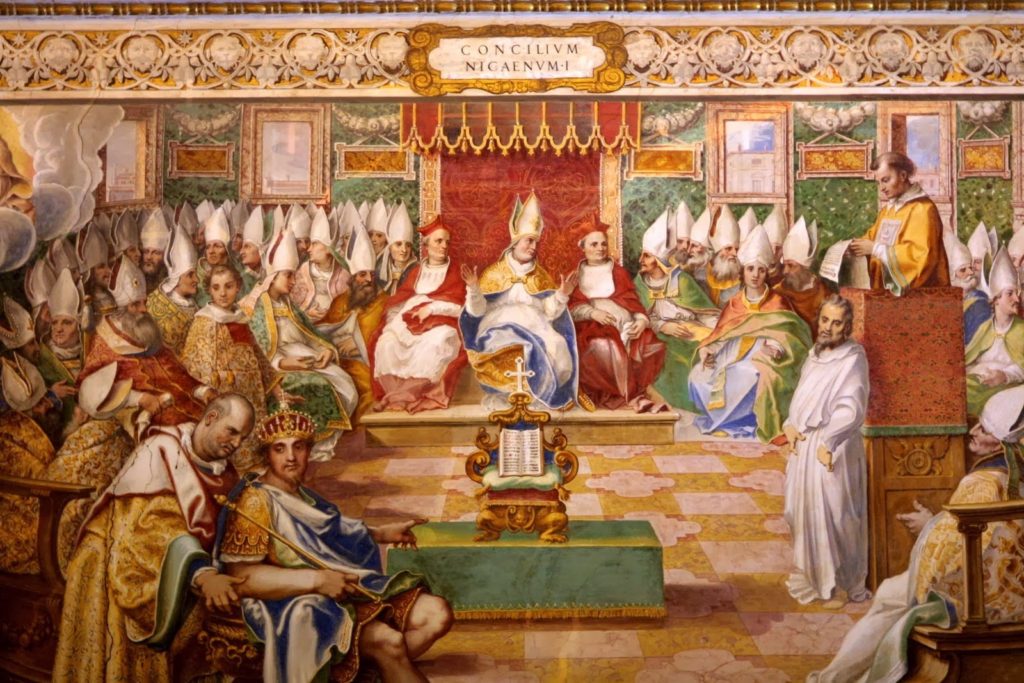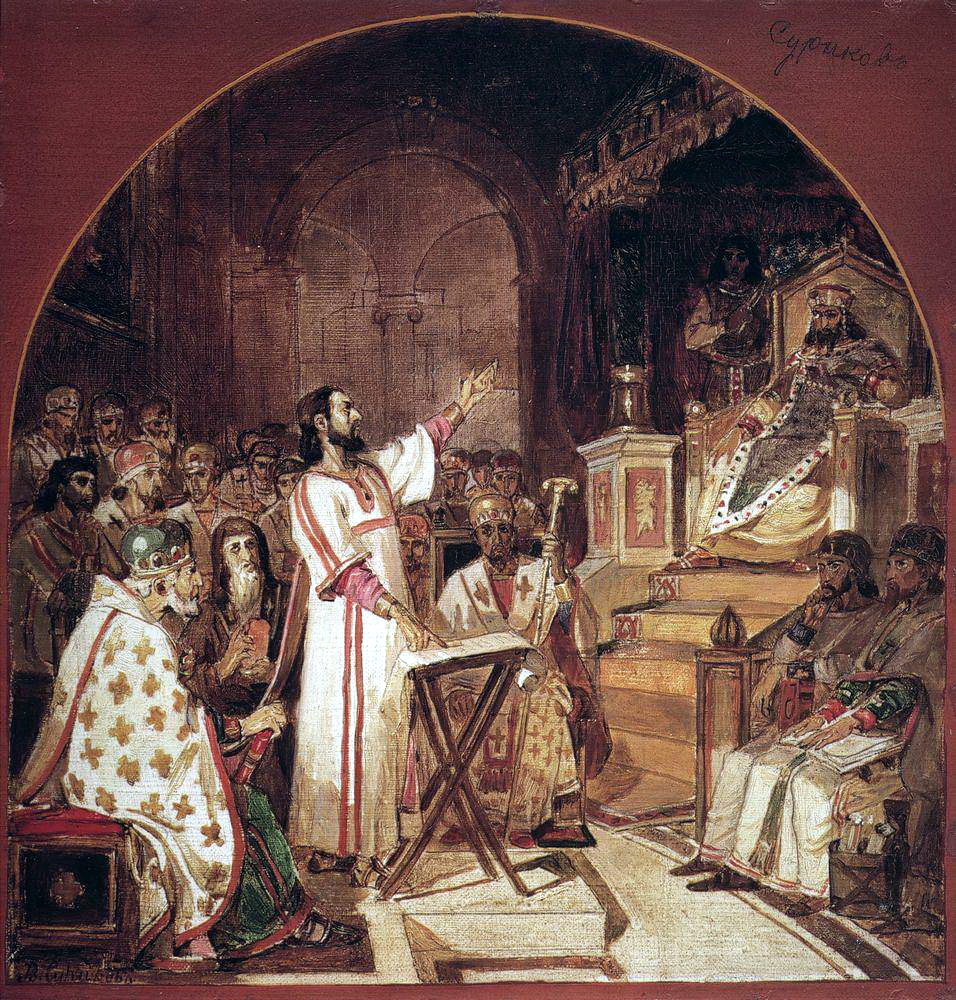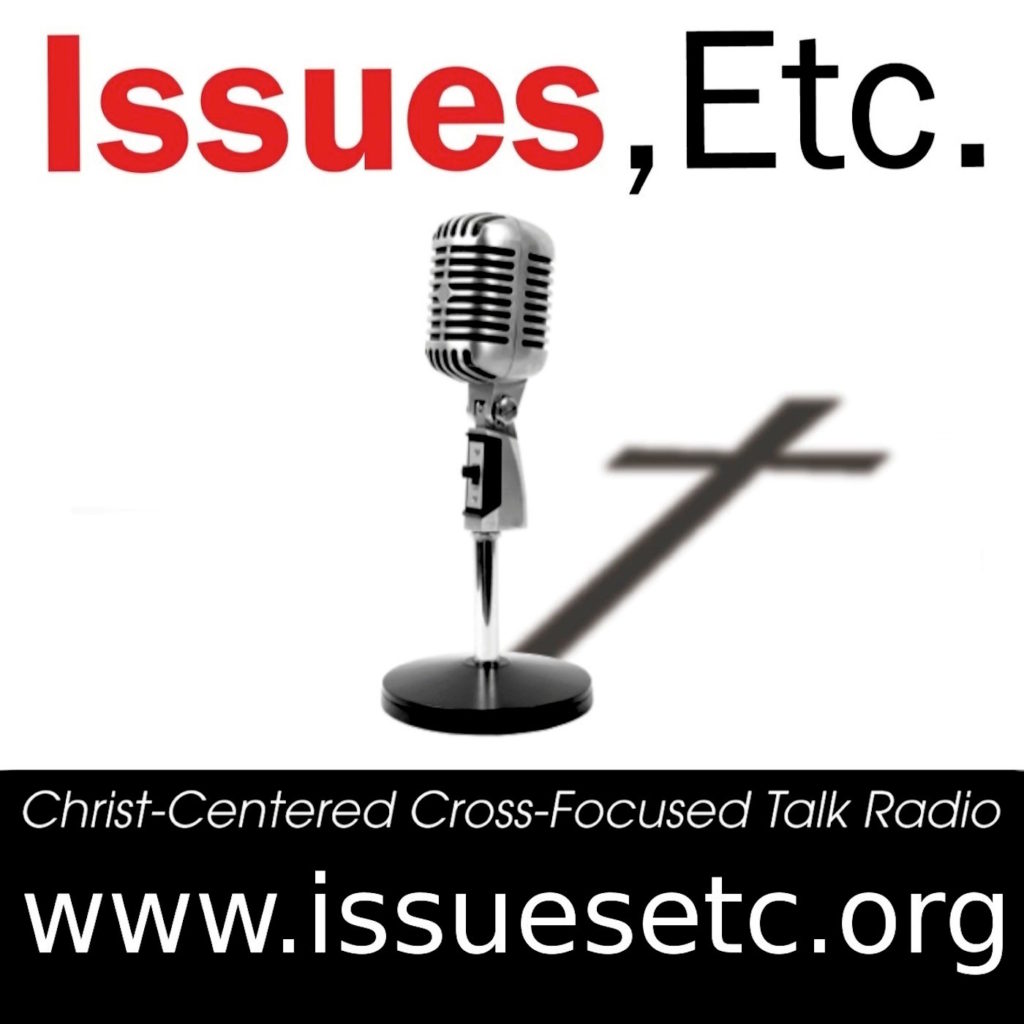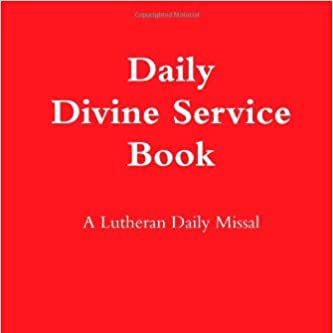
Touchstone of Christian Orthodoxy
The Council of Nicaea, commemorated on June 12th, was convened in the year 325 by Emperor Constantine. The principal reason for the council was the controversy that had arisen among Christians concerning the teaching of a man named Arius, appropriately called the Arian controversy. Also discussed at the council was an attempt to unify the Church’s observance of Easter and establish standard Church (canon) laws.
Even as politics often underlie the Church’s efforts, the council’s aim was nevertheless to unify the Church’s confession and worship of God. As the Rev. Dr. James Busher explains, the faith confessed at Nicaea is the faith that had survived martyrdom, so the council’s efforts were intended to give expression to that Christian faith into which Christians are baptized and for which—if they are called to—they die.
Alexander, the bishop of Alexandria at that time, was the hero of the council and a staunch defender of the orthodox faith against Arius who taught that “there was a time when he was not,” meaning that the Son of God was not begotten from eternity but was rather the first and highest of God’s creatures. Athanasius, whom the Church commemorates on May 2nd, was present, as well, and later went on to be a chief defender of the Nicene faith expressed by this council.
While it dealt with a variety of ecclesiastical topics, the Council of Nicaea is most frequently remembered in the context of its solution to the Arian controversy, which we have received in the form of the Nicene Creed. The Creed’s language of a Son who is “begotten of his Father before all worlds…begotten, not made, being of one substance with the Father” is, in fact, the council’s theological proposal in the face of the Arian problem, a proposal that the Church came to see as consonant with the divine truth.

Brief History
The Council of Nicaea had profound consequences for the whole Christian world, even down to the present day. Lutherans, Roman Catholics, Anglicans, Methodists, Eastern Orthodox, and many others claim its creed for their own. Yet this annual commemoration of the council seems to be unique to the LCMS’s sanctoral calendar. Perhaps this shouldn’t be surprising, though, since Lutherans are known for their love of truth and orthodoxy!
As for the date of this particular commemoration, it is unclear why exactly June 12th was the date that was chosen. The council met throughout the summer of 325, so June 12th certainly falls within the dates on which the council fathers were gathered together in Nicaea, yet it is difficult to say why that date would have been chosen over other possible summer dates.
Collect
Lord God, heavenly Father, at the first ecumenical Council of Nicaea, Your Church boldly confessed that it believed in one Lord Jesus Christ as being of one substance with the Father. Grant us courage to confess this saving faith with Your Church through all the ages; through Jesus Christ, our Lord.
Lessons
Epistle
Gospel
Resources
Issues, Etc. interview with the Rev. Dr. William Weinrich on the council of Nicaea
Issues, Etc. interview with the Rev. Dr. James Busher on the council of Nicaea
Collect for the day and the scriptural basis for the Nicene Creed, line by line, provided on Concordia and Koinonia blog
Propers found in Daily Divine Service Book: A Lutheran Daily Missal, edited by the Rev. Heath Curtis
References:
1. Weedon, William. Celebrating the Saints. Concordia Publishing House. 2016.
Images:
1. The Council of Nicaea, unknown, Italy, ca. 16th century.
2. Первый Вселенский Никейский Собор, Vasily Surikov, Russia, 1876.
3. Schaff, Philip, compilation The Creeds of Christendom, graphic from https://en.wikipedia.org/wiki/Nicene_Creed#Niceno-Constantinopolitan_Creed
Some links might be affiliate links which means we may receive a small commission at no extra cost to you. As an Amazon Associate we earn from qualifying purchases.





[…] so exciting to learn about, so we designed a printable to take some of the information we shared in this blog post and make it even more easy to print out as a guide for you (and potentially your children!) as we […]